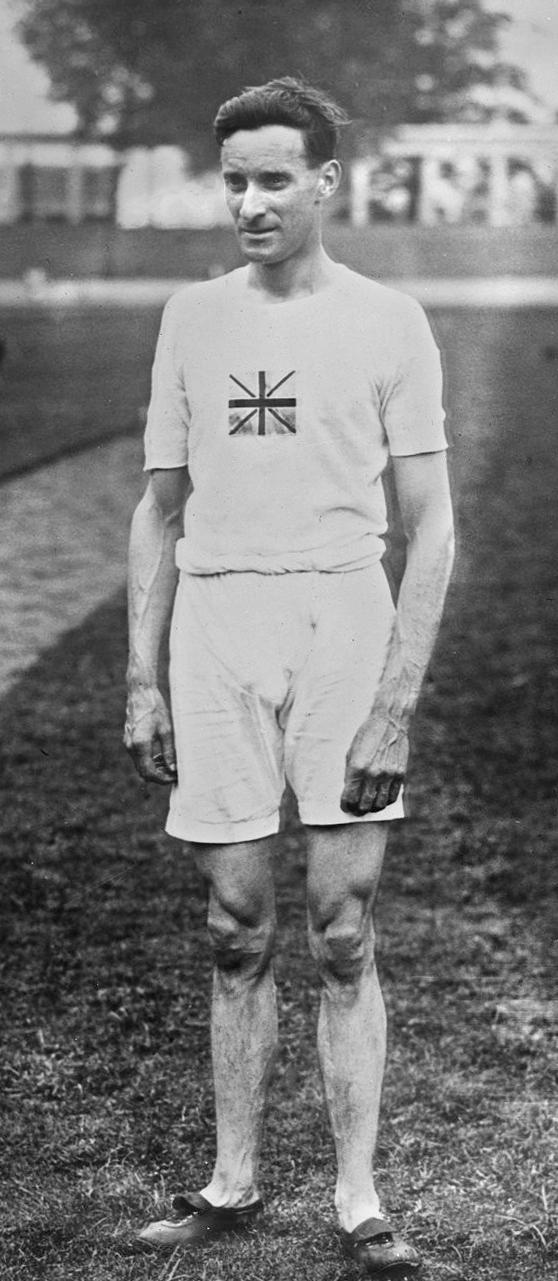1. Overview
James Wilson (2 October 1891 - 1973) was a Scottish long-distance runner who specialized in the 10,000 metres. He notably competed for Great Britain at the 1920 Summer Olympics in Antwerp, where he earned a bronze medal in the 10,000 metres individual event and a silver medal as part of the cross-country team. Throughout his career, Wilson achieved national titles in Scotland and secured multiple medals at the International Cross Country Championships. His life, shaped by a background as a migrant worker and the impacts of World War I, transitioned from an elite athlete to a professional mechanical engineer.
2. Early Life and Background
James Wilson's early life was marked by his family's background as Scottish migrant workers and significant global events that influenced his personal path and athletic aspirations.
2.1. Birth and Family
James Wilson was born on October 2, 1891, in Windsor, Berkshire, England. He was the youngest of five children born to Isabella and Robert Wilson. His father, a herdsman, hailed from Aberdeenshire, Scotland, and the family worked as Scottish migrant laborers in England. James also had a twin brother named John.
2.2. Early Influences and World War I
Both James and his brother John were inspired to join a local athletics club after witnessing the marathon race of the 1908 Summer Olympics, which passed near their home. This event ignited their passion for running. James was a member of the Greenock Glenpark Harriers club. However, the outbreak of World War I dramatically altered their lives. John enlisted in the army and tragically died in 1916 from peritonitis. James, meanwhile, remained at home during the war, working as a metalworker to support himself.
3. Athletic Career
James Wilson's athletic career spanned over a decade, culminating in Olympic success and numerous national and international accolades before his eventual retirement. He stood at 5.7 ft (1.73 m) and weighed 132 lb (60 kg) during his athletic prime.
3.1. National Titles and Early Achievements
Prior to his Olympic appearance, James Wilson established himself as a prominent long-distance runner within Scotland. He secured multiple Scottish national titles, winning the 4-mile event consecutively from 1914 to 1920, and the 10-mile event in 1920. His personal best times included a mile in 4 minutes 28.0 seconds (1915), 4 miles in 20 minutes 22.4 seconds (1920), 6 miles in 30 minutes 45.0 seconds (1920), 10,000 metres in 31 minutes 50.8 seconds (1920), and 10 miles in 52 minutes 4.4 seconds (1920).
3.2. 1920 Summer Olympics
Wilson achieved his most significant international success at the 1920 Summer Olympics held in Antwerp, Belgium. He competed in the 10,000 metres race, securing a bronze medal. He finished five seconds behind the legendary Finnish runner Paavo Nurmi and French athlete Joseph Guillemot. Notably, Wilson had beaten Nurmi by approximately 5 seconds in the heats of the same event.

In addition to his individual medal, Wilson participated in the cross-country event. He finished fourth in the individual 8,000 metres cross-country race, once again placing behind Nurmi. However, he was part of the British team that won a silver medal in the team cross-country event. His teammates in this achievement were Frank Hegarty and Alfred Nichols. The team placed second only to the strong Finnish team, which included Nurmi.
3.3. International Cross Country Championships
Wilson also had a distinguished record at the International Cross Country Championships. He earned a gold medal with the British team at the 1914 championships held in Amersham, England. In 1920, he had a particularly strong showing at the championships in Belfast, winning an individual gold medal and a bronze medal with the team. He continued to contribute to the team's success, earning another team bronze medal in 1924 at the championships in Newcastle-on-Tyne, England.
3.4. Post-Olympic Career and Retirement
Following his successes at the 1920 Olympics, James Wilson transitioned from full-time athletic pursuit to a professional career. He secured a position as a mechanical engineer at the Neasden Power Station, which was responsible for supplying electricity to the Metropolitan Railways in London. This new career led him to semi-retire from competitive running. He did, however, resume competing in 1923, joining the Surrey Athletic Club. Despite his efforts, he was unable to regain his previous elite form and ultimately retired from the sport entirely in 1925.
4. Personal Life
James Wilson was married to Annie Williams. Details of their private life beyond this are not widely publicized.
5. Death
James Wilson died in 1973, at the age of approximately 81 or 82. His death occurred in the London Borough of Brent, Great Britain, and was caused by bowel cancer.
6. Legacy
James Wilson is remembered as a significant Scottish long-distance runner of the early 20th century. His Olympic bronze and silver medals, along with his numerous national and international cross-country titles, underscore his prowess and contribution to the sport of athletics. His journey from a migrant worker background to an Olympic medalist and then a mechanical engineer highlights a life marked by perseverance and adaptation.